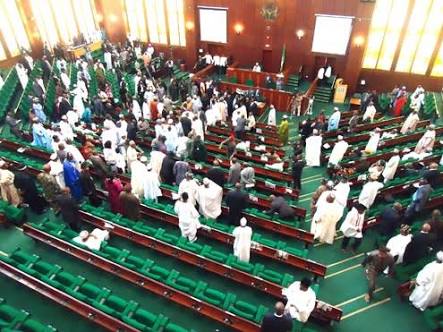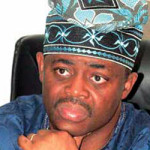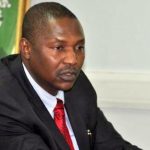Joint Task 10th NASS: And the Search For Peace, Stability and Progress
Articles/Opinion, Latest Headlines Monday, May 8th, 2023
By Idowu John Bakare
(AFRICAN EXAMINER) – The race for leadership in the two chambers of the National Assembly has intensified. Expectedly, gladiators for the coveted seats of the President of the Senate and Speaker of House of Representatives are bracing up for a serious ‘fight’. The stakes are high, especially in the House of Representatives where the minority is wearing the toga of the majority. A group of minority party members-elect had appropriated a name to itself– Greater Majority. In a paradoxical show of strength, the minority oppositions of Peoples Democratic Party (PDP), Labour Party (LP), New Nigerian Peoples Party (NNPP), All Progressives Grand Alliance (APGA), the Social Democratic Party (SDP), African Democratic Congress (ADC) and the Young Progressive Party (YPP) are already flexing some numerical muscles.
The threat is real and the ruling All Progressives Congress, with its slim majority in the House is not taking it for granted. It cannot afford to give the experience of the 8th Assembly. The saga of renegade lawmakers joining forces with minority party members to upstage the majority party and undermining party discipline is still fresh in our memory. The alliance which produced APC’s Senator Bukola Saraki as President of the Senate and PDP’s Ike Ekweremadu as Deputy President of the Senate was troubling for the ruling APC. Not even the emergence of Yakubu Dogara and Yusuf Suleiman Lasun as Speaker and Deputy Speaker both of whom were APC could temper the hostility that followed from the APC led government of President Muhammadu Buhari, since they too acted in deference to party position. It was like the proverbial hen that perched on a tinny rope. Neither the federal lawmakers nor Buhari had peace in that 4-years while the leadership lasted. Of course, not a few would applaud that era and its combative relationship with the Executive. Some had argued it was good for separation of power and independence of legislature.
The lawmakers had held tenaciously to its perceived ideas of separation of powers. Whether it fittingly tallies with what the French philosopher, Baron de Montesquieu envisioned was debatable. The Independence of the Legislature must not be compromised is a common alibi for confrontation. And this will always resonate with many Nigerians especially those with no sense of history of what party discipline and loyalty is in legislative engagement.
But with the benefit of hindsight, the current members and senators-elect of the 10th National Assembly, especially the ranking lawmakers seem to be battle wary. They seem guided by the knowledge that there can be no watertight separation. They may be opting for cooperative partnership. The Executive have what they cherished most. Of course, the Executive holds the ace when it comes to budget implementation. And the legislature, even though, it has strongly been criticized, needs the President and his ministers if they must satisfy the yearnings for capital projects in their various federal constituencies and senatorial districts. Ability to influence federal projects to individual constituencies has always been part of campaign for a reelection. No amount of arm-twisting will deliver constituency projects to a lawmaker whose part of its core duty is constituency representation, with collaboration with the executive.
It has been argued, and profoundly so that the primary duty of a lawmaker is lawmaking. But that is just one of its duties. Constituency representation and oversight are as important as the former. Experience has shown that many parts of the country are often left out by the Executive arm and its budget office when it comes to resource allocation and earmarking of federal projects in annual appropriation bills. The hard question that has been asked is, of what value is the appropriation law made, albeit, for the good governance of Nigeria with direct benefit to a few at the expense of others. Whereas some constituencies are so favored and are benefitting hugely from annual budgetary provisions, i.e, federal projects, others are completely lacking.
Here lies the wisdom in the necessary romance between the Executive and Legislative arm of government in Nigeria where allocations of resources to its components are always grossly disproportionate.
Hence, the thinking in some quarters that the 10th National Assembly ought to engage in cooperative partnership with the Executive without prejudice to its independence.
It is in pursuit of this that a coalition named the ‘Joint Task – 10th National Assembly’ was launched last Tuesday, at the Transcorp Hilton in Abuja to explore the less combative route to executive-legislative relations. It turned out to be an amalgam of members-elect cutting across the APC, PDP, LP, NNPP, SDP, APGA and YPP of the 10th Assembly. Its chairman, alternate chairmen and other official positions are shared across party lines, at both national, zonal and sub-national levels.
Chairman of the Forum, Hon. Usman Bello Kumo, a ranking member from Gombe State told journalists that the “Joint Task 10th National Assembly” seeks among others, to support a rancour-free leadership recruitment process for the 10th House of Representatives. “We are a multi-partisan forum of the eight political parties that have won seats for the 10th House of Representatives,” he said.
According to Rep. Kumo, although they belong to different political parties, “the common denominator among members of the Forum is the resolve to jointly take up the task of promoting peace, unity and stability of the 10th National Assembly and by extension, Nigeria. He vowed that Joint Task 10th National Assembly would promote cooperation but protect the Independence of the Legislature as well as the unity and cooperation of its members. “We can do this in an atmosphere of mutual respect and cooperative partnership between Legislature and Executive.”
Other objectives of the Forum according to him is a commitment to the core mandate of legislation for good governance, grassroots impact and constituency outreach, equity and fairness among members -ranking and new, ensuring unity, equity and fairness in the emergence of presiding and principal officers in line with best parliamentary practices. “Our driving force is ‘Nigeria’s unity and the stability of the 10th House of Representatives,” Kumo added.
Interestingly, the Forum resolved to obey the decision of the majority party, the APC, “in deciding which zones produce the Speaker and the Deputy Speaker. We believe that the APC would do the right thing, and once the zoning is done, we would decide on the next line of action. When the zoning is done, we would be guided by capacity, competence, experience and other leadership qualities.”
However, the Forum said it had no preferred candidate for the office of Speaker and Deputy Speaker at the moment but would take position at the appropriate time. “We note that a few of our colleagues, all of whom are eminently qualified, have declared their interest in the Speakership seat. We shall support a just and fair process that would inspire confidence in the House of Representatives and promote peace and progress of the National Assembly and Nigeria at large,” Kumo said in his inaugural address to the Forum. Our message to Nigerians at this point is that we are ready to work for good governance towards the betterment of our dear country and the citizens. To achieve that, we must work harmoniously with the Executive Arm, without compromising on our independence,” the Gombe lawmaker added.
Observably, the Joint Task 10th National Assembly is not the only coalition seeking to shape the events in the next National Assembly, a group of members of minority caucus that christened itself “ the Greater Majority” appears set for a showdown. The group resolved to contest for Speaker, and to nominate candidates for the presiding officer positions. The members of the opposition parties in the House of Representatives said they will contest for the positions of the Speaker and Deputy Speaker of the 10th National Assembly, as a majority.
The caucus had last month formed a coalition to offset conventions and rules in order to upstage the APC. Currently, the minority parties put together have 183 members-elect out of the 360 in the green chamber. The political parties that made up the caucus include the PDP; LP; NNPP; ADC; YPP; APGA and SDP. While the nation awaits the decision of the ruling APC on zoning, it is yet to be seen how far Greater Majority would go with their threat.
Related Posts
Short URL: https://www.africanexaminer.com/?p=87727





















